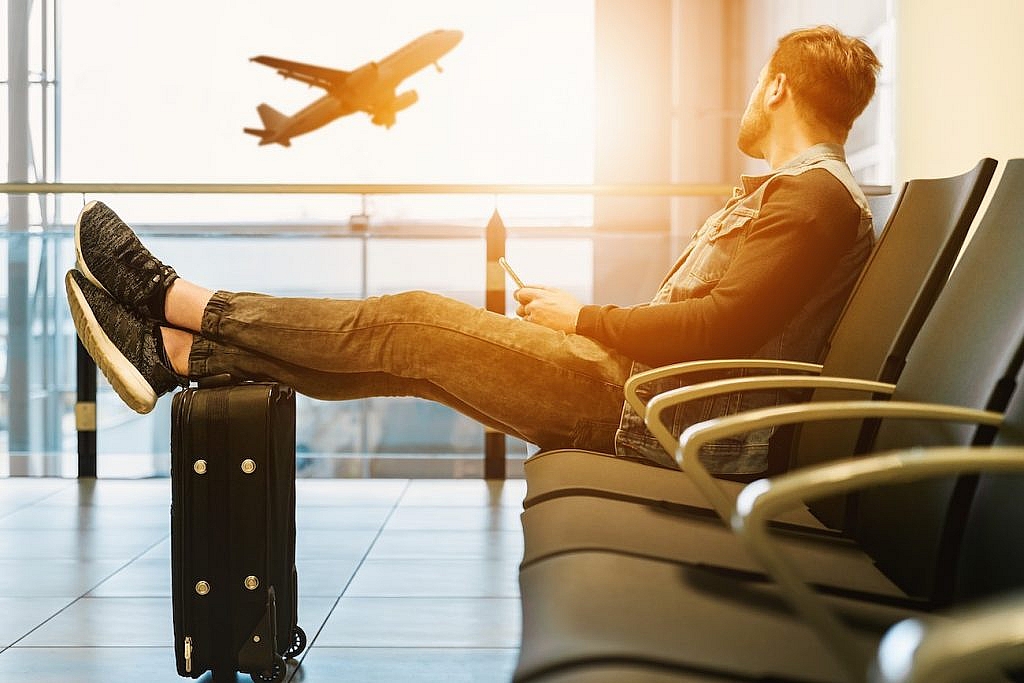How Technology Can Enhance Customer Experiences: A Travel Chatbot Use Case
In the past few years, the focus of businesses has shifted from profit maximization to customer satisfaction, and rightly so.
With the ascent of social media platforms, modern buyers have gotten a voice, or rather, a solid platform to voice their feelings. What’s more, most likely, no business wants their clients to put out their negative experiences with brands via web-based networking media stages for everyone to see!
According to the New Voice Media data, almost 59% of customers aged between 25-35 readily share their negative experiences online.
For any business – regardless of whether it be a for-profit or a non-profit undertaking, or whether it be a public or private venture – consumer satisfaction is one among the numerous significant key exhibition pointers that must be considered, checked, and estimated.
In that capacity, consumer satisfaction quotient shows how well a business is serving its clients. Improving this sole factor can change the face of a business.
All things considered, a happy customer is a satisfied customer. Happy and satisfied customers not just become loyal and rehash customers of a brand, yet they additionally get new customers.
What’s more, as is valid for everything in the business world today, Artificial Intelligence (AI) and Machine Learning (ML) have discovered their way into the space of consumer satisfaction.
The most excellent example of this being chatbots. From enhancing the entire process of customer support to transforming the process of customer surveys, chatbots are finding applications in various fields of business.
However, in this post, we’re going to focus on travel chatbots and how they are transforming the travel industry for the better.
Travel Chatbot and its Benefits
Programming controlled by AI and NLP, a chatbot is intended to reproduce human speech and associate with people in their natural languages. Chatbots can be created and modified to suit the particular needs of a business. Since these bots are currently the hottest pattern in the business, travel organizations have additionally joined the game through Travel Bots.
Expedia maintains that while planning a trip, a traveler visits as many as 38 websites on an average. Not to forget the endless series of calls and interactions with travel agents and booking agencies.
All of this makes the process of planning a trip both time-consuming and overwhelming. This is where travel chatbot solutions come in.
Travel chatbot is personal assistant bearing both analytical and predictive capabilities. Furthermore, they are available 24×7, can interact in a plethora of human languages and can respond to traveller queries and requests in real-time.
So, if you have a travel-related query, you can just ask a travel bot and the bot will answer your questions accurately, scourge the Internet to get you the best deals – basically, it will help you with anything you need.
A travel chatbot can help spare a client’s time, help sort out the outing, propose spots to visit, list the best deals accessible (travel tickets, accommodation, and so forth.), and substantially more.
Being excellent profiling tools, chatbots can help personalize the user experience by gathering relevant user data such as purchase history, travel preferences, etc.
Travel Chatbots – Success Stories
Travel chatbots are already being leveraged by big names in the travel and hospitality industry such as Expedia, KLM Royal Dutch Airlines, Ryanair, and Marriott, to name a few.
For instance, Expedia’s Facebook Messenger bot allows users to perform a streamlined search for hotels. All one needs to do is to open Facebook Messenger and provide the bot details about the travel plan.
After the bot has all the necessary information, it will list the five most popular and top-rated hotels in the users’ preferred choice of location.
And once the users click on any one of the five options, they will be redirected to Expedia’s site where they can directly book the hotel.
Then again, KLM Royal Dutch Airlines’ travel bot can support 13 languages. It uses Facebook Messenger’s checkbox plugin feature on the checkout page to provide travellers with the option of choosing to receive all travel updates including booking confirmation, check-in notification, boarding pass, and flight status updates on Messenger itself.
Similarly, there’s another Facebook-based travel bot called Kayak that allows users to find the best hotel and flight deals via an instant messaging platform. Not just that, Kayak also offers beneficial travel advice to its users and updates them about their flight status.
Chatbot solutions help make a streamlined and shrewd communication channel among brands and clients. Aside from this, they can computerize the procedure of inquiry/demand dealing with, along these lines permitting travel service providers to devote their human funding to other and progressively significant assignments that need human connection and exertion.
Needless to mention, travel chatbots (just like any other chatbot) offer 24×7 customer support. So, customers no longer have to wait to get their travel issues and queries sorted.
This is just another example of how AI and chatbots are transforming the ways in which consumers are connecting and interacting with brands.
Because of AI, chatbot solutions are ending up progressively keen and savvy, to such an extent that they are turning into trusted advisors of clients. What’s more, this is only the start, who realizes what else chatbots will have the option to do in the years to come!
